INDIA AT 79: WHOSE FREEDOM WE ARE CELEBRATING?
A hijacked legacy: when power picks patriots:
As India marches toward its 79th Independence Day, we are encouraged to remember the legends who tore through the chains of colonial enslavement with unmatched sacrifice and relentless courage. But disturbingly, the remembrance of these true revolutionaries has been hijacked by political realism. Today, those who run the country rarely even speak the names of the real heroes who gave us our freedom, those of holistic freedom fighters from all communities. Instead, they resonate with carefully selected figures who fit a convenient, majoritarian narrative. Under the rule of the BJP, history is being rebranded, glorifying men like Veer Savarkar, a man who begged mercy from the British, or Nathuram Godse, the assassin of Mahatma Gandhi, now subtly portrayed as a misunderstood nationalist. This is not just historical revisionism, it's an ideological expulsion. Muslim freedom fighters who bled for this land are not only erased but defamed, cast under suspicion, or labelled as extremists. Kerala, once a bastion of intellectual resistance, has not been spared. The Mughals, once regarded as vital architects of Indian culture and history, have been deleted from textbooks without debate. In their place, the state, like many others, now manufactures idols out of dissidents, promoting a sanitised, one-dimensional version of patriotism, one that rewards obedience and punishes diversity.
The unsung muslim revolutionaries:
Islam is the second-largest religion in India, and thousands of Muslims stood shoulder to shoulder with Hindus in the fight against British colonialism. Yet, their names have been systematically erased over the decades from history books, national narratives, and even public memory. Despite sacrificing their lives for a free India, Muslim freedom fighters are rarely acknowledged or celebrated. Worse, the entire community is often scapegoated, unfairly blamed for the Partition and the creation of Pakistan, as if the decisions of a few can judge a whole population's patriotism. More than seventy years after Independence, ask any citizen to name three Muslim freedom fighters, and most will draw a blank. History textbooks barely mention a handful like Ashfaqulla Khan, Sir Syed Ahmad Khan, Khan Abdul Ghaffar Khan, and Maulana Abul Kalam Azad, and even these names are reduced to passing references, stripped of depth and honour. In my search, even Google offered little. Wikipedia, the largest online knowledge repository, lacks any dedicated page on "Muslim Freedom Fighters of India." This isn't ignorance; this is intentional omission. Is it because the contribution was truly insignificant? Or is it because the truth challenges the narrative of those who wish to monopolise patriotism? I turned to books, archives, magazines, and lost references, determined to uncover what has been buried. What I found shattered the myth: Muslims were not just participants but revolutionaries, thinkers, warriors, and visionaries. It's time this country stopped viewing its Independence Movement through the lens of religion and caste and started telling the whole story.
Variamkunnath Kunhamed haji: the Sultan who denied his throne:
Before we speak of other forgotten Muslim freedom fighters across the nation, let us first turn inward and scrutinise our own legend: Variamkunnath Kunhamed Haji, Ali Musliyar, and the countless Moplah martyrs of Kerala — warriors whose names are barely whispered in modern classrooms, and when they are, it's often with suspicion or distortion. Variamkunnath Kunhamed Haji's life is not just a historical fact — it's an inspirational epic, a revolutionary blueprint, and a silenced ballad of resistance that every youth of contemporary Kerala should know by heart. But today, we're forced to ask the absurd: Does Kunhamed Haji still have to wait for a certificate of patriotism? Are we honestly questioning whether he was a patriot or a terrorist? Is the Malabar Freedom State, briefly established by him in defiance of British rule, to be remembered as an act of rebellion or painted as a communal uprising? This is the rot that selective history creates, turning freedom fighters into footnotes, or worse, villains. Kunhamed Haji was born in Chekkiparambu, Valluvanaad, into a family already burning with the fire of resistance. His father, Moideen Kutty Haji, and mother, Kunji Ayshumma of Karuvarakundu, raised him in a household that breathed defiance against British imperialism. From his early years, Kunhamed bore a righteous fury against the colonisers — not born out of blind anger, but shaped by inherited memory and lived oppression. His rage wasn't impulsive; it was historical, ancestral, and deeply political. Before he became the symbol of resistance, Variamkunnath Kunhamed Haji was betrayed not by the British but by dissenters within his homeland.
Branded a threat by local collaborators who aligned with colonial power, Haji was suspended from his native Nellikuthu in Malabar. Exiled and disowned, he journeyed through Makkah and Persia, immersing himself in Arabic, Persian, and Urdu, sharpening his intellect and identity. Though he gained wealth abroad, the fire of injustice never left him; his rage smouldered silently beneath spiritual devotion and outward success. The British and their allies, especially the jemis (landlords) who had stolen his family's land and dishonoured his father, remained his true enemies. Upon returning to India around 1916, he was finally allowed back into Malabar, only to be arrested under suspicion for the murder of the Malabar Governor, Gynes. With no evidence found, he was released, but by then, the legend of Kunhamed Haji had already begun to spread. What followed was nothing short of revolutionary. Through sheer willpower, charisma, and an unbreakable sense of justice, Haji united the oppressed Kudiyan and Keelan tenant groups, who had long suffered under feudal and colonial exploitation. He fed, financed, empowered, and gave them a cause. He never rested; his relentless organising earned him the honorific Sultan Kunhamed Haji among the people. Even Deputy Collector C. Gopala Nayar, no sympathiser of rebellion, admitted that during Haji's leadership, "he never discriminated based on caste or creed," describing him as a beacon of hope for the downtrodden. In a land where class, caste, and colonialism had long conspired to divide people, Kunhamed Haji stood as a rare unifier, fearless, spiritual, and revolutionary.
Haji towards politics and piety: Khilafat movement :
In 1920, at the Jubilee Malabar Khilafat Meeting in Kozhikode, Haji was officially introduced into the movement by N. P. Menon. From that moment on, Haji dedicated his life entirely to the cause of the Malabar Khilafat. In August 1920, when Mahatma Gandhi and Shaukat Ali visited Kozhikode in support of the Khilafat Movement, Haji made a prominent appearance, symbolising his growing influence and commitment to the struggle. However, tensions escalated following a Karachi Khilafat Conference declaration that strongly opposed British colonial rule. This declaration was translated and circulated in mosques throughout Kerala, serving as a powerful message of resistance. At the same time, Gandhiji's call for Swaraj (self-rule) within one year inspired widespread belief that freedom was within reach. By 1921, a Mapilla Volunteer Corps was formed under Haji's leadership. Interestingly, many of its members were former soldiers who had served the British during World War I. These men brought with them military experience, courage, and confidence.
Unity as rebellion:
Under Haji's leadership, both Hindus and Muslims stood together in unity, a solidarity that proved deeply troubling to the British authorities. This Hindu-Muslim unity under a common anti-colonial cause was seen as a significant threat to British control in the region. Variamkunnath Kunhamed Haji's message deeply resonated across the Malabar region, reaching even the most remote corners. His powerful words inspired unity, caution, and purpose among the Mappila people. His call was not one of blind violence, but of strategic resistance with moral discipline. He is known to have conveyed: "We hold no anger or hatred against our Hindu brothers. They are our neighbours — many of them are like family. The divisions you see between us are the deliberate creations of British colonisers. Do not be deceived by their schemes to separate us." "Never compel Hindus to accept Islam. Never harm them — they are struggling people, carrying the weight of families and hard labour. Do not take their property unjustly. If we wrong them, they may be forced to align with the British, which would only strengthen the enemy." "Our real resistance is not against our Hindu brethren, but against the Jemis (landlords) and the cowardly informants who serve the British. Sadly, many of our Hindu brothers have been brainwashed and manipulated to work against us. We must rise with our weapons, not in hatred, but in defence and fight a relentless battle against injustice and betrayal
Was It Faith or Frustration? Unpacking the Real Triggers of the Malabar Rebellion:
In 1971, the government of Kerala recognised those who participated in the rebellion as freedom fighters. However, many assert that religion played a role. Which of these stories is accurate? To begin with, a lot of freedom fighters were deeply invested in matters of religion: Gandhi is an example, for his politics was heavily infused with religious conviction. Therefore, when religious justification meets violence, the issue becomes particularly complicated. However, viewing everything in history as an "either-or" or through a single lens is unsatisfactory. There was unquestionably a religious component, a sustained economic component, a local political component, and a connection to the Muslim world in the rebellion. Since we live in times when historical events are used to target and vilify minorities, there has been a hesitation to speak of the religious element and focus on economic factors instead. However, both are mentioned in the Mappila query.
The initial "outrages" tended to be led by marginalised, poor men. Their victims were primarily landlords or those who served landlords. It was documented that a few jenmis controlled hundreds of thousands of acres in Malabar even before the uprising of 1921. The peasant was left in the landlord's hands because British policies were skewed in their favour. When you consider that most of the peasantry in South Malabar, where Mappilas were concentrated, was Muslim and that almost all landlords were Hindu, you can connect the clashes' economic logic to how quickly this became communalised. However, it is also true that religious jargon was used, and fanatical tendencies were frequently displayed. The majority of those who took part in the atrocities of the nineteenth century were killed in action, but the few dozen who were captured spoke of jihad: this was a fight against non-believers, good things were waiting for those who killed kaffirs, etc. In one instance, a man admitted that because martyrdom and death were the only paths to heaven, he feared being shot in the leg. However, this is almost immediately linked to caste as well: many avarna Hindus chose to convert during the second half of the nineteenth century and identified with the Mappilas. For instance, in 1843, a woman converted and immediately began speaking confidently to a superior of an earlier caste. The man forced her to renounce Islam and revert to her low-caste status. Still, it is a glimpse into the general unease between Mappila culture, which not only opened a door to greater dignity for many Hindus but also provided a religious justification to justify active resistance and even glorify it, and Hindu landlords leading a caste order.
A Nation Isn't Free Until All Its Histories Are: As India celebrates its 79th Independence Day, the tricolour may rise high, but beneath it lies a fractured historical memory. True freedom is not just the absence of colonial chains, but the honest recognition of all those who broke them. Today, we stand at a critical juncture: will we continue to worship a sanitised, majoritarian myth, or will we dare to honour the full spectrum of sacrifice, including those whose faith, skin, or speech differ from the dominant narrative?Variamkunnath Kunhamed Haji's story and that of countless other Muslims is not a side note in India's struggle for freedom. It is the very pulse of resistance. Reclaiming these stories is not just an act of justice; it is an act of patriotism. A nation that forgets its true heroes isn't just rewriting history; it's slowly erasing its soul.
About the author:
Mohammed Hashim is a PG student at the department of quran and hadith studies, wafy campus kalikavu.
Disclaimer
The views expressed in this article are the author’s own and do not necessarily mirror Islamonweb’s editorial stance.
5 Comments
-

-

I just finished reading your article, and I must say – it was truly fantabulous! The way you articulated your thoughts with such clarity and depth is incredibly impressive. Every point was well-researched, logically structured, and delivered with a tone that was both engaging and thought-provoking. It's rare to come across content that not only informs but also inspires. Your writing reflects a strong command over the subject as well as a unique ability to connect with the reader. Thank you for such a wonderful piece – I genuinely look forward to reading more of your work! Finally, I want to say that just I wrote on this topic but how to send I don't know, I hope I will try my best to cooperate with you
-

I just finished reading your article, and I must say – it was truly fantabulous! The way you articulated your thoughts with such clarity and depth is incredibly impressive. Every point was well-researched, logically structured, and delivered with a tone that was both engaging and thought-provoking. It's rare to come across content that not only informs but also inspires. Your writing reflects a strong command over the subject as well as a unique ability to connect with the reader. Thank you for such a wonderful piece – I genuinely look forward to reading more of your work! Finally, I want to say that just I wrote on this topic but how to send I don't know, I hope I will try my best to cooperate with you
-

There is a book written by Ram Puniyani which attempts to cast a critical view on Savarkar's life and his relentless cooperation with British. He wrote countless letters seeking mercy from colonist British and promising to cooperate with them to oppose Indian National Movements. This book in further details describes how Savarkar opposed Indian national movements carried out by freedom fighters. how later, he founded RSS in 1925. when everyone was resigning from British recruitments, he remained in cooperation with British and furthermore, encouraged others to remain in jobs provided by British, so that he can suppress Indian movements of Gandhi and others, especially Quit India Movement, Civil Obedience Movements. I would recommend for Muslim students to read that once to understand how far Savarkar went to suppress Indian Nationalism.
-

There is a book written by Ram Puniyani which attempts to cast a critical view on Savarkar's life and his relentless cooperation with British. He wrote countless letters seeking mercy from colonist British and promising to cooperate with them to oppose Indian National Movements. This book in further details describes how Savarkar opposed Indian national movements carried out by freedom fighters. how later, he founded RSS in 1925. when everyone was resigning from British recruitments, he remained in cooperation with British and furthermore, encouraged others to remain in jobs provided by British, so that he can suppress Indian movements of Gandhi and others, especially Quit India Movement, Civil Obedience Movements. I would recommend for Muslim students to read that once to understand how far Savarkar went to suppress Indian Nationalism.

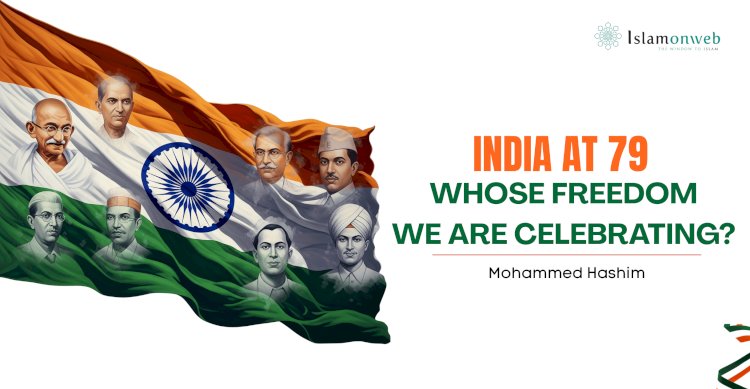


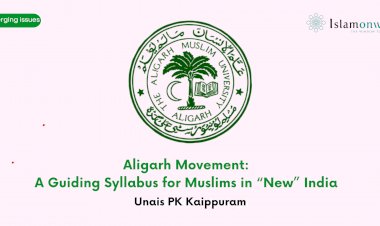
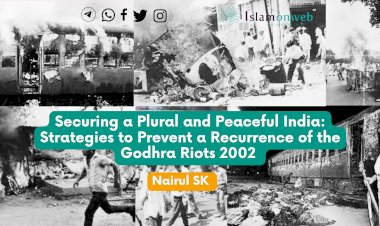
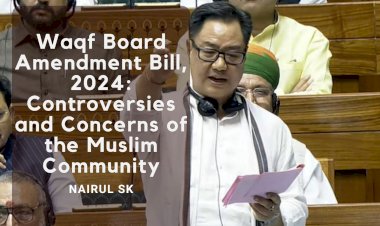
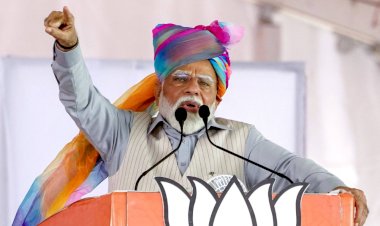
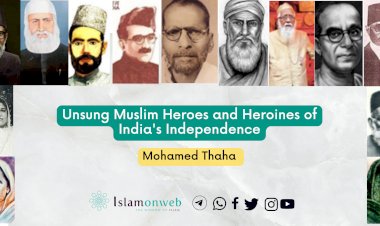
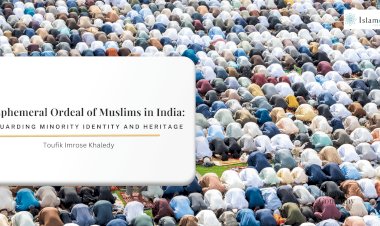














Leave A Comment